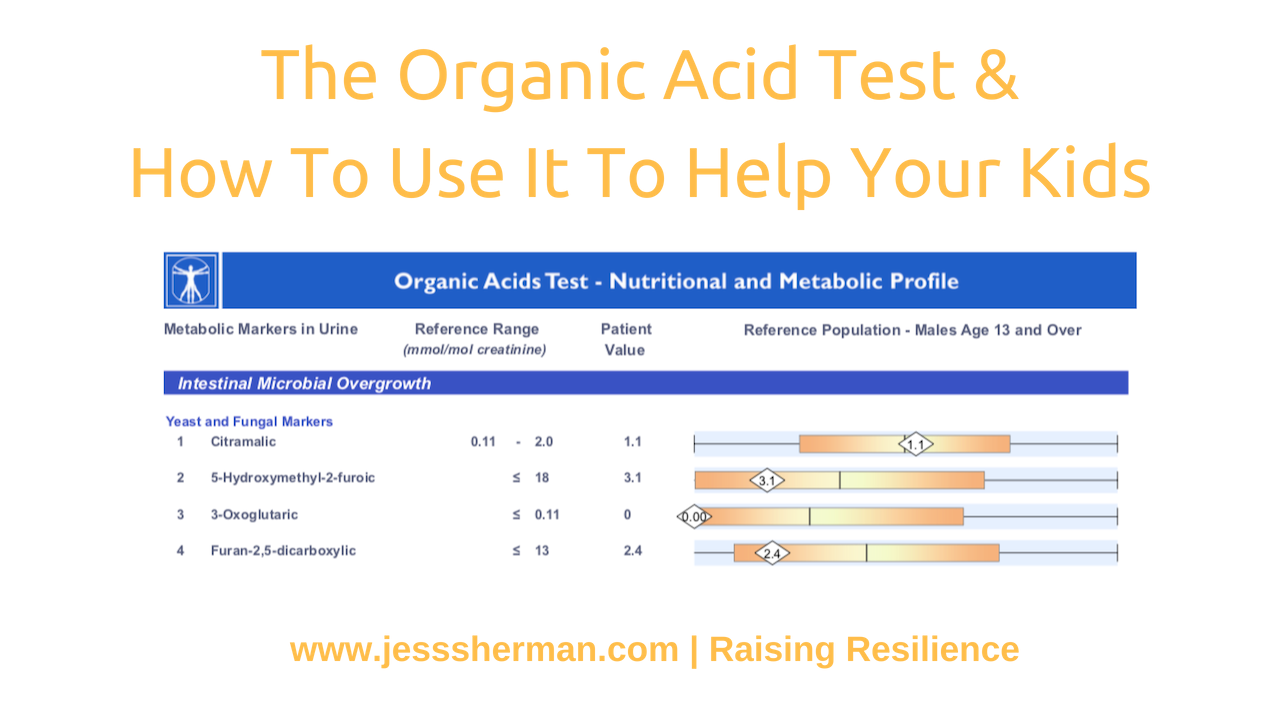What Is The Organic Acids Test And When To Use It

The Organic Acids Test (OAT) is a urine test that offers a snapshot of overall health. It includes over 70 markers that give us insight into intestinal health, nutrient absorption, hormonal pathways, detoxification, oxidative stress and neurotransmitter levels.
Pretty insightful!
I sometimes suggest parents order the OAT test to give us some direction as to the underlying contributors to behaviour and learning concerns, hyperactivity, movement disorders, skin issues, fatigue and poor immune function. It helps us create a diet strategy.
But here’s a note of caution...
I caution parents against investing in the Organic Acids Test unless they are working with someone who is trained to interpret it and can help them integrate the results into a comprehensive plan.
Do not do this test because you read about it on a forum somewhere and thought it would be a good idea - it’s more complicated than that.
It’s important to recognize that the Organic Acids Test is not a diagnostic test – it is a screening tool, meant to help guide your process by giving insight into what might be going on in the body.
The test looks for chemicals in the urine, called “metabolites”, the presence of which give us insight about the function of various biochemical pathways.
Most of the markers in this test are quite “dynamic”, meaning they change quickly in response to supplements, environmental exposures and diet changes. Some of them also give us some clues as to possible genetic variants that could be explored further.
The dynamic nature of the test means that if you do the test now, before having a plan, you’ll likely have to redo it later once you have a plan in place. That approach is a waste of money, in my opinion.
Instead, here’s what I suggest…
Address basic nutritional needs first. If you don’t know what I mean by that, read my book, or this post.
Find a team or practitioner who is familiar with this test and is trained to interpret it (yes, I can help you with this).
Once basic nutritional concerns have been addressed, use the results of the Organic Acids Test to help create a diet and supplement strategy to bring the body back into balance.
Some of the insights we glean from the Organic Acids Test…
- a few key nutritional deficiencies, particularly B vitamins, vitamin D and CoQ10
- detoxification capacity as reflected by glutathione precursors and other important detox players
- dopamine and serotonin pathways
- the contribution of yeast, clostridia and mould
- the efficiency of the mitochondria in energy production
- the ability to metabolize oxalic acid and salicylate
- fatty acid metabolism
What this test does NOT show us…
- food sensitivities or allergies
- gut irritation or intestinal permeability
- direct markers of inflammation
- parasites
- it does not give us a full picture of nutritional balance
- celiac or gluten sensitivity
When interpreting an Organic Acids Test it's always best to view the results in context of behaviours and symptoms that we see. We can’t rely on it to give us complete answers. It helps outline for us a roadmap and areas to pursue but does not give definitive diagnoses.
And, as I mentioned, it will be much more helpful if you address basic nutritional needs first. Once basic nutritional concerns have been addressed, this test helps us create a more specific diet strategy to bring the body back into balance.






